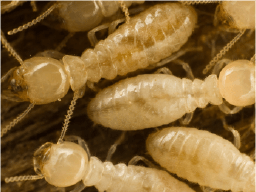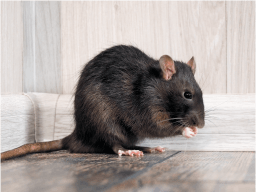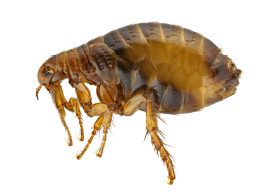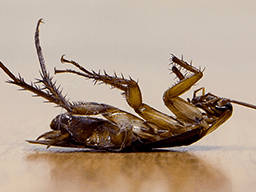What Do Baby Flies Look Like?
Need to get rid of baby flies? Read on to learn the answers to all of your important questions. Need help? Call our professionals today to get started.
Schedule Today!What Does A Baby Fly Look Like?
You’re probably quite familiar with a fly’s appearance, but could you describe what a baby fly looks like? Baby flies look totally different than adult flies and actually go through a few different transformational stages until they turn into that thing you recognize as the annoying fly at every outdoor picnic. Read on to find out how to identify baby flies in all their various forms.
The Lifespan of a Fly
The life of a fly starts when a female fly lays her eggs. Female flies look for locations to lay their eggs that are not only protective, but will provide a food source as soon as the eggs have hatched. Typically, female flies lay their eggs on places where organic material has begun to decay such as on trash piles, decaying animals and even piles of feces. A female fly can lay batches of about 100 eggs at a time.
The Larval Stage
When the eggs hatch in about 12 days, baby flies emerge that are white to pale-white in color and look like small grains of rice or tiny worms or grubs. At this larval stage, they are legless and wingless and are referred to as “maggots.” They are around 1.2 millimeters in length at this stage. They will immediately begin to feed from their surroundings. Larvae do not like light and prefer to live in warm, dark and moist environments. Full larval development takes about 2 weeks if conditions are right. If the fly maggots have hatched into a cool environment, larval development can take up to 30 days.
The Pupal Stage
When they have completed development in the larval stage, fly maggots will move to a dry, cool place where they will transform into pupae. Fly larvae use their last shed larval skin to form the pupal case, which is therefore not surprisingly cylindrical, has rounded ends and is about 1.2 millimeters long. At the beginning of the pupal stage, the pupal case is commonly yellow in color, but will turn red and finally darken into a nearly black casing by the time they are done developing. It usually takes pupae about 6 days to complete their development, but can take up to 20 or more days in colder weather.
Fly Development
After pupal development, an adult housefly exits the pupa and has somewhere from 2 weeks to 1 month to live the rest of its life. It only takes 16 hours for male houseflies and 24 hours for female houseflies to become sexually mature at this point. This lifecycle can take from 7 to 10 days in optimal conditions. Depending on how warm the surrounding environment is, houseflies can produce 12 generations of flies up to 20 generations in tropical and other warm climates.
Because flies can reproduce and develop so quickly, a fully entrenched fly problem can happen very rapidly. To avoid flies in your home, try to reduce breeding locations by cleaning trash cans and making sure they are properly closed. Clean and maintain garbage disposals and pet feeding areas. If you need help with any fly issue, call a professional to help you with your problem.
Find A Pest Specialist For Fly Control
If you are concerned about fly control for your home, please give us a call or fill out the form on this page. PestControlExperts.com is a team of experts who are highly qualified to provide the best recommendations for you and your home, no matter which part of the United States you live in.
Call 855-891-5410














